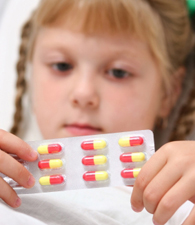 The statistics on children being poisoned in the home are genuinely shocking. Every day in the U.S., two children die as a result of being poisoned, according to a report issued by the Centers for Disease Control (CDC). In emergency rooms throughout the country, more than 300 people under the age of 20 are treated for poisonings. Poisoning prevention is of the utmost importance.
The statistics on children being poisoned in the home are genuinely shocking. Every day in the U.S., two children die as a result of being poisoned, according to a report issued by the Centers for Disease Control (CDC). In emergency rooms throughout the country, more than 300 people under the age of 20 are treated for poisonings. Poisoning prevention is of the utmost importance.
These statistics are all the more tragic because a few precautions can ensure poisoning prevention for children. Remember that many items in the home can be poisonous to both children and adults if ingested. This includes pesticides, household cleaning products, and medications if taken improperly. Children—especially very young children—get to know the world by putting things in their mouths. In some cases, unfortunately, that can be fatal.
Because of children’s tendency to ingest material, the number one safety precaution for poisoning prevention is to make sure potentially poisonous material is out of the reach of children. Lock up pesticides, cleaning products, and medications—including such seemingly harmless ones as aspirins, over-the-counter (OTC) cold medications, vitamins or supplements. They are not harmless if swallowed by a child or in large quantities by an adult. Place them out of reach as well.
Get rid of all unused medications. This applies to both OTC and prescription medications. The CDC recommends mixing them with coffee grounds or kitty litter and then throwing them away.
Carefully read all medication labels and read all warnings. Don’t mix medications with foods that are warned against. Make sure you know the child-appropriate dose of a medication; it is not the same as the dose for adults in most cases.
Be prepared. Put the poison hotline number, 1-800-222-1222, in your phone and post it on a wall in your home. Operators who can give advice on poisons and emergency measures are a phone call away, 24/7.







